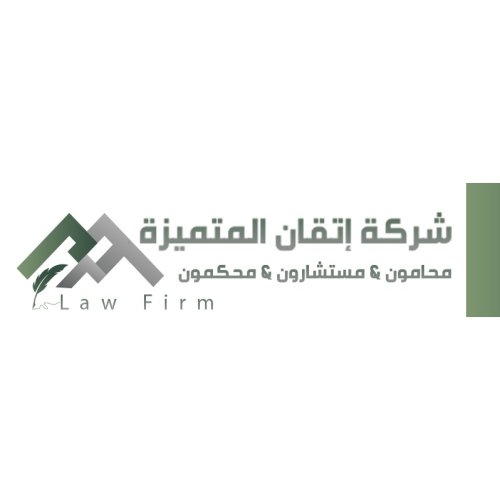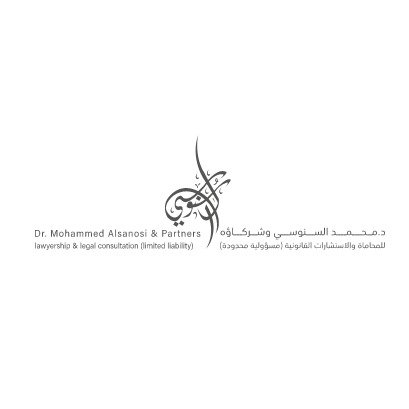Best Family Lawyers in Jeddah
Share your needs with us, get contacted by law firms.
Free. Takes 2 min.
Free Guide to Hiring a Family Lawyer
List of the best lawyers in Jeddah, Saudi Arabia
Saudi Arabia Family Legal Questions answered by Lawyers
Browse our 3 legal questions about Family in Saudi Arabia and read the lawyer answers, or ask your own questions for free.
- How to register nikkah in saudiarabia?
- Hello, I want to know some details from you. Can you tell me? As i want to ask you here about the marriage process. Actually, the situation is that I am a Saudi resident, Iqama holder, and the person I am going to marry is a US green card holder.... Read more →
-
Lawyer answer by Al Dossary Law Firm
Since you reside in Saudi Arabia and wish to marry a US Green Card holder (a permanent resident of the United States), the procedures depend on each of your statuses (nationality, religion, and the groom's residency status). 1️⃣ Approval for...
Read full answer - Sole custody for illegitimate child
- I am a filipina who got pregnant out of wedlock from a palestinian guy 7yrs ago. He didn't want to have a child from me and i lost contact from him. I am now married living in saudi Arabia and the company of my husband needs a sole custody document... Read more →
-
Lawyer answer by ASR Law Group LLC اتحاد العصر للمحاماة والاستشارات
The Family attorny can assist you in having your coustoday so please c o n t a c t
Read full answer - Can you process an annulment even if both of us are abroad?
- We are separated for almost 20 years, i am here in Saudi Arabia and my ex is in US with his new family.
-
Saudi Arabia Family Legal Articles
Browse our 1 legal article about Family in Saudi Arabia written by expert lawyers.
- Saudi Arabia: How to File for Divorce - Step-by-Step
- Family law in Saudi Arabia is mainly governed by the Personal Status Law (2022) and applied by the Personal Status Courts under the Ministry of Justice, with many services now handled online through the Najiz platform. Marriage is only fully protected if it is properly documented and registered; unregistered religious... Read more →
About Family Law in Jeddah, Saudi Arabia
Family law in Jeddah, as in the wider Kingdom of Saudi Arabia, is primarily governed by Islamic law (Sharia). This legal framework covers a variety of issues related to family life and relationships. The laws address marriage, divorce, child custody, inheritance, and other familial matters. Local courts in Jeddah interpret and apply these laws to resolve disputes and legal issues that arise among family members. Understanding these laws requires a grasp of both legal and cultural contexts unique to Saudi Arabia.
Why You May Need a Lawyer
There are several situations where you may require the expertise of a family lawyer in Jeddah. Common scenarios include:
- Marriage Contracts: Assistance in drafting and interpreting marriage contracts that align with legal requirements.
- Divorce Proceedings: Legal representation to help navigate the complex divorce process, including issues of financial settlements and alimony.
- Child Custody: Guidance on custody arrangements and the enforcement of child support according to Islamic principles.
- Inheritance Disputes: Resolution of disputes related to inheritance distribution as per Sharia law.
- Domestic Violence: Legal recourse and protection measures for victims of domestic violence.
Local Laws Overview
Several key aspects of family law in Jeddah are worth noting:
- Marriage: Must comply with Islamic law, and interfaith marriages are generally not recognized.
- Divorce: Primarily governed by Sharia, with different rules for men and women regarding the initiation and process of divorce.
- Child Custody: Often awarded to the mother while the child is young, but custody decisions consider the best interests of the child.
- Inheritance: Distributed according to fixed shares dictated by Sharia, with specific portions allocated to different relatives.
- Guardianship: Men generally have legal guardianship over female relatives, impacting women's legal autonomy in several areas.
Frequently Asked Questions
What is the legal age for marriage in Jeddah?
The legal age for marriage in Saudi Arabia is generally considered to be 18, but exceptions can be made with judicial approval.
Can women initiate divorce proceedings?
Yes, women can initiate divorce, known as "khula," which requires returning the dowry to the husband and may involve other conditions set forth by a judge.
How is child custody determined?
Custody is typically granted to the mother until a certain age, but the child's welfare is the court's primary consideration.
Are prenuptial agreements recognized?
Prenuptial agreements are not common, but marriage contracts can include specific terms that are legally binding, provided they don't contradict Islamic law.
What are a father’s financial responsibilities after divorce?
The father is generally responsible for child support and covering educational expenses following a divorce.
How are inheritance disputes resolved?
Inheritance disputes are resolved according to predetermined shares in Sharia law, often requiring legal intervention for fair distribution.
What legal rights do women have in Jeddah?
Saudi law has made significant strides in improving women’s rights, particularly concerning travel, employment, and access to services without a guardian’s permission.
Are domestic violence cases addressed in family law?
Yes, there are legal measures in place to protect individuals from domestic violence, and victims can obtain legal assistance and protection orders.
Can child support payments be enforced?
Yes, courts can enforce child support payments, and failure to comply with court orders can lead to legal penalties.
What is the procedure for legal adoption?
Adoption, as understood in the Western context, is not practiced in Saudi Arabia, but fostering (Kafala) is an alternative that is legally recognized and commonly practiced.
Additional Resources
For those seeking legal advice and assistance in family matters, the following resources may be helpful:
- The Ministry of Justice: Offers guidelines and legal services related to family law.
- Local Law Firms: Specializing in family law and offering consultation services.
- Charitable Organizations: Providing legal aid and support to individuals facing family issues.
- Social Services Departments: Offering support in cases of domestic violence and child welfare.
Next Steps
If you need legal assistance in family matters in Jeddah, consider the following steps:
- Consult with a specialized family lawyer who has a comprehensive understanding of Sharia law.
- Gather all relevant documentation related to your case, such as marriage certificates, custody agreements, and financial records.
- Contact local social services for additional support and resources, especially in cases of domestic violence or child welfare concerns.
- Keep informed about your legal rights and any changes in family law that might affect your situation.
Lawzana helps you find the best lawyers and law firms in Jeddah through a curated and pre-screened list of qualified legal professionals. Our platform offers rankings and detailed profiles of attorneys and law firms, allowing you to compare based on practice areas, including Family, experience, and client feedback.
Each profile includes a description of the firm's areas of practice, client reviews, team members and partners, year of establishment, spoken languages, office locations, contact information, social media presence, and any published articles or resources. Most firms on our platform speak English and are experienced in both local and international legal matters.
Get a quote from top-rated law firms in Jeddah, Saudi Arabia — quickly, securely, and without unnecessary hassle.
Disclaimer:
The information provided on this page is for general informational purposes only and does not constitute legal advice. While we strive to ensure the accuracy and relevance of the content, legal information may change over time, and interpretations of the law can vary. You should always consult with a qualified legal professional for advice specific to your situation.
We disclaim all liability for actions taken or not taken based on the content of this page. If you believe any information is incorrect or outdated, please contact us, and we will review and update it where appropriate.
Browse family law firms by service in Jeddah, Saudi Arabia
Jeddah, Saudi Arabia Attorneys in related practice areas.
















